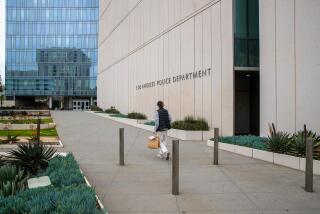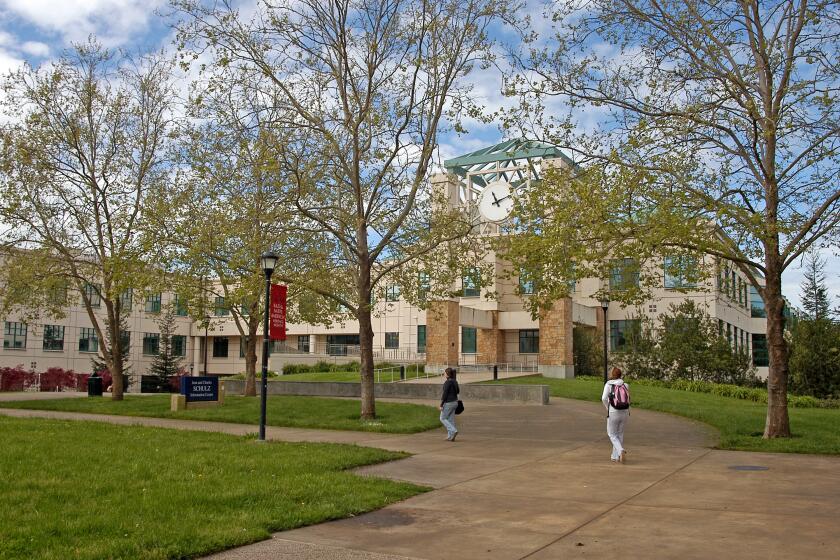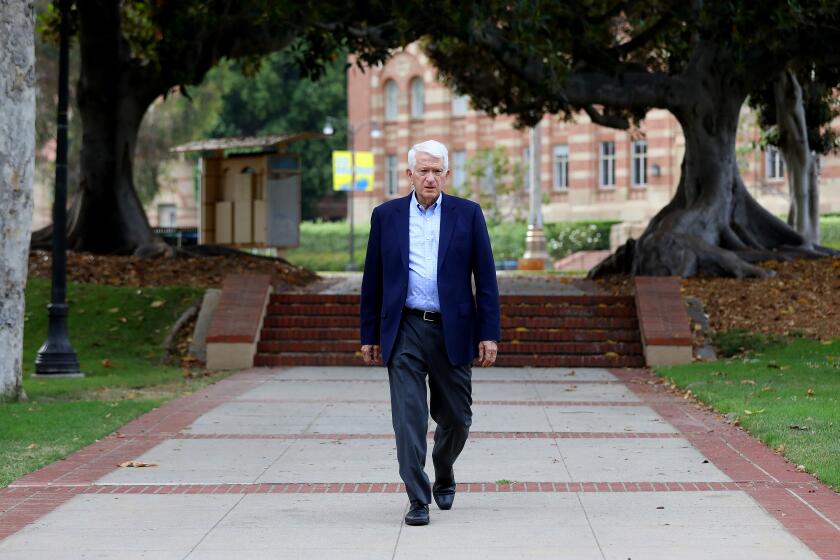El Camino Dean Sees Need for That Old College Try in Industry
America hasn’t lost its technological smarts and there’s still a lot of Yankee know-how and ingenuity around. But the country lacks a comprehensive system for getting out the word on technical innovations and new production systems to the industries that need them most, says Susan Cotler, dean of industry and technology at El Camino College.
Outmoded Methods
As a result, she says, those industries continue to use outmoded production methods, further eroding their position in an increasingly competitive world market. On the other side of the “information barrier,” colleges may find themselves 10 steps behind in teaching the new technologies and management techniques developed by the more advanced industries, she says.
The solution, according to Cotler: Build a new “state-of-the-art” educational network that links campuses with industry and ensures a steady exchange of the latest information and ideas.
“We need to know what’s actually happening out there in the workplace today, so that we can adapt the skills we teach to fit the jobs that are waiting for our students,” she said. “And industries, particularly those that are falling behind in productivity, need to have ready access to the pool of campus knowledge.”
To lay what Cotler hopes will be the foundation of a new information-sharing network, El Camino has teamed up with four other community colleges in the state to form a “Future Technologies Center.”
Among key concepts, she said, are frequent workplace visits by college instructors who also receive intensive training seminars; a computer-based library of the latest production and management systems; specialized, short-term courses taught both on campus and at the work site, and eventually a “distance learning network” that will use cable TV and computer terminals to carry knowledge to wherever it is needed throughout the state.
Four Other Colleges
The other four community colleges in the pilot project, funded by a state start-up grant of $54,000, are Rio Hondo in Whittier, Fullerton Community College, Los Rios in Sacramento and Cabrillo at Aptos in Northern California.
The Gold Coast Technology Exchange Center, a private, nonprofit firm in Orange County, is coordinating the project for the five colleges. On June 1, instructors and administrators will gather in Ontario for a strategy session and a weeklong seminar on new production management techniques.
Associates of Edward Demming, who pioneered “quality circles” in the 1950s, will teach the seminar. Cotler noted that Demming, now in his 80s and semi-retired, taught his concepts to the Japanese after U.S. industry “turned up its nose” at the idea of getting workers involved in efforts to improve factory productivity.
“We’re just glad that Mr. Demming has come home,” she said. “A lot of people in this country are interested in his ideas now.”
Kathy Lusk, director of the Technology Exchange Center, said the five colleges will be given different assignments to make the ambitious project more manageable. One of El Camino’s specialties, for example, will be the use of computer-based statistics to help ensure the most successful production of new products.
When that and other new manufacturing methods have been tested at participating factories, she said, the knowledge will be disseminated to the other 101 community colleges in the state, which will pass on the information to industries in their areas.
Cotler said interest in the new learning network in the South Bay has been “instant and intense.”
“Educating technical workers is a costly, never-ending effort at aerospace and other high-tech firms,” she said. “We feel that the new network, and all the training programs that go with it, will prove to be a much more cost-effective approach.”
Last week, Ron Way, a professor of machine tool technology and computer-assisted manufacturing and one of five El Camino instructors involved in the pilot project, tried out the role of visiting student at Hughes Radar Systems in El Segundo. The lesson for the day was robotics.
“If we don’t keep up,” he said, “we will be teaching material in the classroom that is outdated by the time our students reach the job market.”
In an interview, Cotler expressed an evangelistic zeal for what she called the “coming transformation of American industry.”
“The United States was once the world’s leader in productivity, and now we’re seventh in that column and fifth in living standards,” she said. “But we are moving into a dynamic, exciting period that I believe will reverse that situation.
“When the new network is in place, and we have a free flow of the latest ideas and information, our country will once again be unbeatable, no matter what the competition.”
Of course, she added, El Camino will be among the pioneers.
“We don’t do much basket-weaving around here any more,” she said.
More to Read
Start your day right
Sign up for Essential California for news, features and recommendations from the L.A. Times and beyond in your inbox six days a week.
You may occasionally receive promotional content from the Los Angeles Times.






